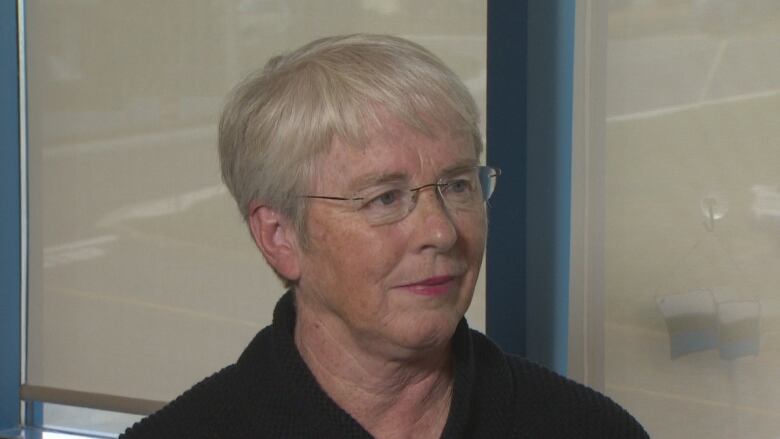New financial assessment process 'a welcomed change,' says seniors advocate
Province to eliminate liquid asset testing as part of assessments

The provincial government has introduced a new financial assessment process for those seeking long-term care and community support services.
Starting Nov. 1 liquid asset testing will be eliminated, meaning people will no longer have to provide proof of any cash in their bank account, or investments that can be converted to cash such as a savings account or RRSP.
Originally, only people with liquid assets below a certain level would be eligible for financial assistance, according to a government media release, which said that could require significant documentation.
"In my opinion it's a very welcomed change made to the system," the province's Seniors' Advocate Suzanne Brake,told CBC News on Monday.
"It will affect seniors and those under 65 years old as well, who access services through our community support program, through the personal care home system and through our long-term care system."
Change to the system has been long advocated. At least 10 years, according to Brake.
She said several different seniors'organizations have been vocal about the change, and Newfoundland and Labrador was falling behind other provinces.

"Almost every single province in Canada has an income only approach that they use, versus income and assets," she said.
"Up until next month, because this changedoesn't take place until next month, what has been assessed on would be your liquid assets and your income," adding it has been a long-running myth that people would lose their homes when moving to long-term care, andfixed assets were never at stake.
Premier Dwight Ball said the change acknowledges a situationhis office has been hearing about for a while.
"We have heard time and time again from clients and community advocates that this process should change," Ball said in a media release.
"In response to these calls for change, we are delivering on our commitment in The Way Forward to make the application and eligibility process more person-centred, client-friendly and transparent."
The process for applying for and obtaining government assistance is much more simplified and less intrusive now, according to Brake. Financial assistance officers and social workers will no longer ask how much money the applicant has tucked away, and then bereassessed every year.
"Control will now sit in the hands of seniors and others, who access those services, and yes, it certainly is a much more palatable kind of situation for people to be in," she said.
Income test expanding
According to a government release as of Feb. 1the needs test for specific programs will be eliminated and income testing will be expanded to all services offered by the regional health authorities. Eligibility for government programs and assistance will be determined solely throughincome testing.
To qualify for financial support, the health authority will only look at a person's net income from the Canada Revenue Agency Notice of Assessment. Anyone currently receiving government assistance will be assessed under the income test when their reassessment daterolls around.
Existing clients that have a higher contribution when they go through the income test will be grandfathered into the new program, according to the release.
With files from Debbie Cooper












_(720p).jpg)


 OFFICIAL HD MUSIC VIDEO.jpg)
.jpg)



























































































